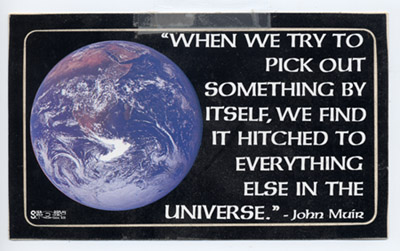In the 1980s I worked as a theater critic. I spent a lot of time in expensive Broadway theaters and ambitious nonprofit repertory companies. But some of my most memorable experiences were at street theater events by groups like the San Francisco Mime Troupe and Vermont’s Bread and Puppet Theater. I first saw them in Boston at a time when the manifesto below was relatively new. It’s now a quarter century old but it hasn’t lost any of its truth.
For most of my writing life I’ve had a copy of this poster on my wall near where I work. When we rebuilt my basement office I lost track of it, but recently found it and rehung it. Here it is for you. (I got this image here.)
Happy long weekend, everyone. Make some cheap art!


